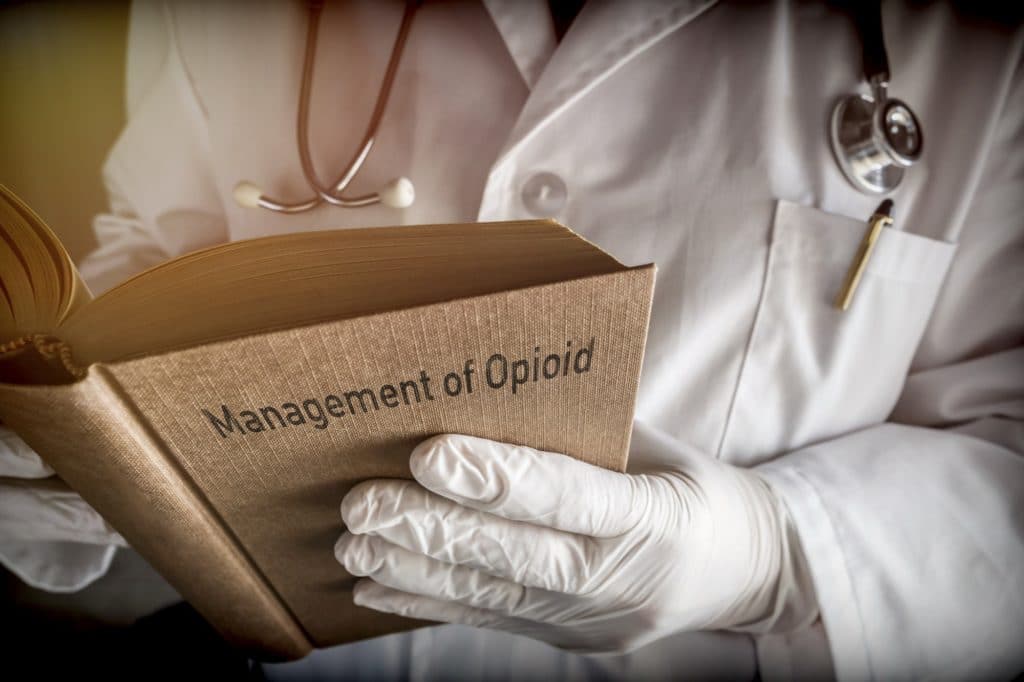Opiates or opioids are drugs used to treat pain. The term narcotic refers to either type of drug.
If you stop or cut back on these drugs after heavy use of a few weeks or more, you will have a number of symptoms. This is called withdrawal.
Causes
In 2016 in the United States, about 948,000 people used heroin during the past year. In the same year, about 11.5 million people were nonmedical users of narcotic pain relievers. This means they were taking narcotics that were not prescribed to them. Narcotic pain relievers include:- Codeine
- Heroin
- Hydrocodone (Vicodin)
- Hydromorphone (Dilaudid)
- Methadone
- Meperidine (Demerol)
- Morphine
- Oxycodone (Percocet or Oxycontin)
Symptoms
Early symptoms of withdrawal include:- Agitation
- Anxiety
- Muscle aches
- Increased tearing
- Insomnia
- Runny nose
- Sweating
- Yawning
- Abdominal cramping
- Diarrhea
- Dilated pupils
- Goose bumps
- Nausea
- Vomiting
Exams and Tests
Your health care provider will perform a physical exam and ask questions about your medical history and drug use. Urine or blood tests to screen for drugs can confirm opiate use. Other testing will depend on your provider’s concern for other problems. Tests may include:- Blood chemistries and liver function tests such as CHEM-20
- CBC (complete blood count, measures red and white blood cells, and platelets, which help blood to clot)
- Chest x-ray
- ECG (electrocardiogram, or heart tracing)
- Testing for hepatitis C, HIV, and tuberculosis (TB), as many people who abuse opiates also have these diseases
Treatment
Withdrawal from these drugs on your own can be very hard and may be dangerous. Treatment most often involves medicines, counseling, and support. You and your provider will discuss your care and treatment goals. Withdrawal can take place in a number of settings:- At-home, using medicines and a strong support system. (This method is difficult, and withdrawal should be done very slowly.)
- Using facilities set up to help people with detoxification (detox).
- In a regular hospital, if symptoms are severe.
- Treat vomiting and diarrhea
- Help with sleep
- Self-help groups, like Narcotics Anonymous or SMART Recovery
- Outpatient counseling
- Intensive outpatient treatment (day hospitalization)
- Inpatient treatment
Support Groups
Support groups, such as Narcotics Anonymous and SMART Recovery, can be enormously helpful to people addicted to opiates:- Narcotics Anonymous — www.na.org
- SMART Recovery — www.smartrecovery.org

